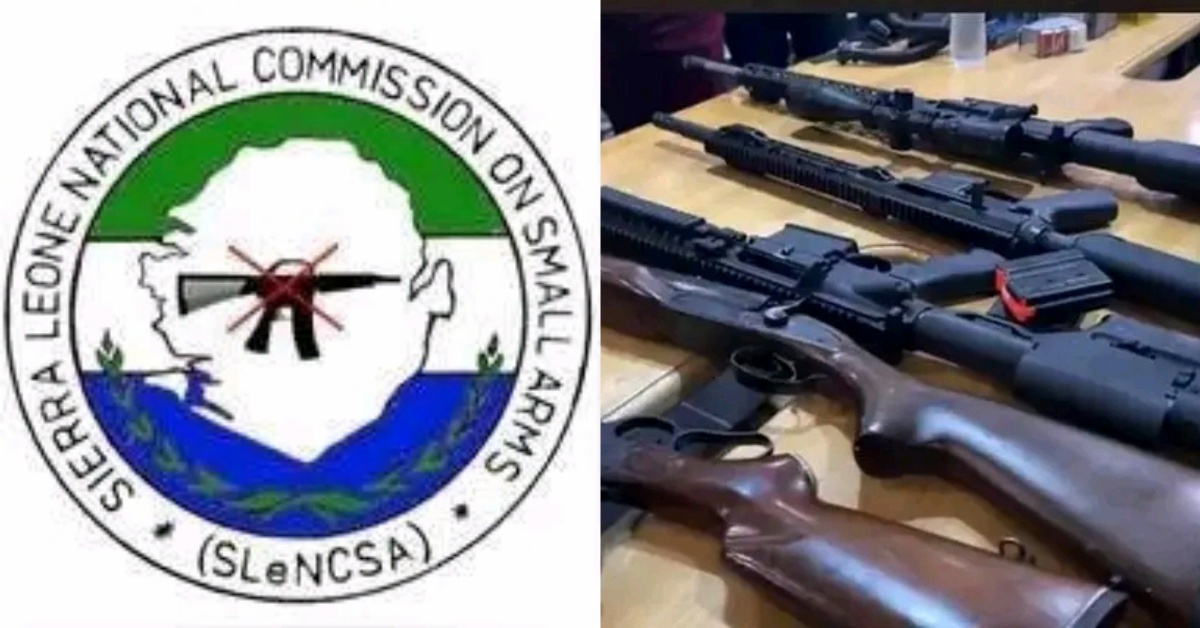The Sierra Leone National Commission on Small Arms (SLCNCSA) in collaboration with the Republic of Sierra Leone Armed Forces (RSLAF), have kick started a nationwide demolition of nearly 2.000 unserviceable high explosives and 622,000 small arms ammunition.
The exercise started on March 28, 2023, in Gondama, Bo district and is expected to last for 11 days. During the period, the demolition team comprising MAG technician, RSLAF personnel, Medics and SLeNCSA staff is to move across five Control Demolition Sites where expired explosives and small arms ammunition are being assembled for destruction.
The exercise is being funded and supported technically by the Mines Advisory Group MAG),
According to RSI AF’s Armed Technical Officer (ATO) Captain Crispin Dumbuya, the exercise came as a result of a statement that was issued to SLENCSA to help detonate some of the stored explosives and ammunition that were in poor condition or had exceeded its safe storage life in order to reduce the risk of an unplanned explosion in some of the barracks’ areas that could harm even civilians, damage critical infrastructure and also detonate other explosives that may still be in good condition.
He said together with MAG and Small Arms Commission, they have assembled all obsolete explosives and small arms ammunition in five Control Demolition Sites (CDS) including Gondama. Bo district, Daru, Kenema district, Kabala in Koinadugu district, 11 Infantry Battalion, Malikia Barracks, Kambia district and the Armed Forces Training Center, Benguima, Western Rural Area.
“Members in those aforementioned communities are advised to stay off the range area during the exercise. The general public are equally urged not to panic from sound of explosives but go about their lawful daily activities,” Captain Dumbuya warned. He explained that each of those CDS is located about 1,500 meters radius off human settlement. He added that the stockpile of expired munitions, consisting primarily of mortar bombs, RPG Anti-Personnel, RPG Anti-tank among other explosives were transported to an isolated location where the items were stacked in a man-made hole and feed them with an explosive substance in preparation for destruction.
“Once that is done, a detonator cable is connected inside the explosives and move at a safer distance, myself and the MAG technician will use an electric detonator to initiate a fire, which consumed the flares and eventually detonate the explosives into the air,” he explained.
Speaking on how the ammunitions were determined expired, the ATO said “Just like food, every munition has an expiration date. The percentage of functionality depreciates over the munitions’ service life. Once we inspect and identify the defects or determine that munitions are no longer useable in accordance with technical orders, we declared them unserviceable for destruction.”
When asked as to whether the blasting pressure will not affect the settlements and the people around, Captain Dumbuya said the health hazards of the blasting pressure depends on the amount of explosive material, the duration of the explosion, the distance from the explosion site, and can include serious damage to the thorax or the abdominal region, eardrum rupture, and death “that is why we move far away from human settlements”
Meanwhile, the Assistant Commissioner of SLeNCSA, Colonel (Rtd.) Mbade Sogo Bangura started off by explaining that Section .10 (a) of the Arms and Ammunition Act of 2012 gives the Commission the lawful authority to destroy obsolete stocks of small arms and light weapons held by armed and security forces and other authorized bodies.
He added that because the military could not readily produce the detonating materials either because of its cost or some other reasons, they requested the Commission through an official correspondence in 2018 to help them destroy explosives whose lifespan had elaphed and posed danger to not only their men, but also the community.
He disclosed that it was based on that request that they solicit support from one of their international partners MAG- that have been very supportive over the years especially to the Commission and Sierra Leones’ primary security forces. He noted that MAG have helped strengthened the capacity of the Primary forces through building and rehabilitating armories to ensure proper management of weapons, reduce stockpiles of excess and obsolete ammunition and provide trainings in different areas.
“MAG is one of our reliable partners. Over the years, they have facilitated the training of our primary security forces to implement best practices for physical security and stockpile management at secure storage facilities, and also train our personnel in stockpile management,” he noted.
He concluded that SLeNCSA will continue to collaborate with its partners to deliver on its mandate with the view to ensuring a safe and secured environment.











